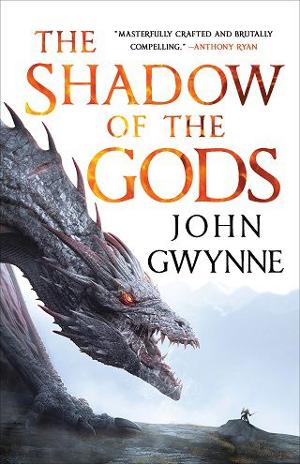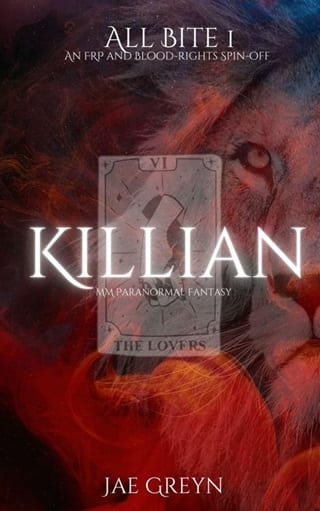Chapter Fourteen: Elvar
CHAPTER FOURTEEN
ELVAR
Elvar lifted her oar and dragged it clear of the oar-hole as the Wave-Jarl glided through the foaming surf and grated on a shingle beach. Agnar was unstrapping the steering oar and raising it so that it would not snare on the ground below the shallow water. Sighvat leaped overboard and splashed through the surf on to a narrow beach, a handful of the Battle-Grim following him. Gulls circled and screeched above them, launching from their sea-cliff nests.
They were two days south from Iskalt, roughly half the distance to Snakavik already covered with the help of a strong north-westerly that had filled the Wave-Jarl’s sail and sent them speeding south. The wind had changed, now, hissing cold and sharp from the east and slowing their progress. Agnar had chosen this island to camp upon, the most southerly tip of the Frost-Isles, as he had seen the glimmer of a beach which offered safe landing, and the bunching of storm clouds on the horizon that encouraged them to seek shelter. The sun was a pale cloud-wreathed glow dipping behind steep, grassy slopes as the Battle-Grim disembarked and shored the Wave-Jarl with ropes tied to rocks. The beach was too narrow for them all to camp, so, while most of them had been dragging their drakkar above the tideline on the beach, Biórr and a few others had been sent to scout for a decent site to camp. As Elvar was leaning and breathing hard from tugging on a rope, the young warrior returned, telling them he had found a spot at the top of a nearby slope that would keep the Wave-Jarl in sight. Agnar left five men with the drakkar, Thrud among them because of his arrow wound, and the rest of them followed Biórr as he led them up a winding path, Thrud’s complaints echoing louder than the gulls’ screeching. Sighvat led the new prisoners, Berak and his wife and child, and the Seiðr-witch Kráka and the Hundur-thrall followed close behind. The path twisted through grass and heather and finally spilled on to a level plateau. An open space of goat-cropped grass ran up to a slab of moss and lichen-covered granite as tall as a mead hall, and as wide as one. Alders clustered along the plateau’s eastern fringe, protecting them from the searing wind.
“A good spot,” Agnar pronounced, looking back down the steep slope to see the Wave-Jarl on the beach below them. The Battle-Grim proceeded to make camp, scraping a pit in the ground, searching for dead wood for a fire and a stream to fill water bottles. As darkness settled, flames were crackling and a pot of stew hanging from an iron frame was bubbling away, the smell of mutton and fat making Elvar’s belly growl. Sighvat was ladling out bowls for the Battle-Grim, filling Elvar’s and then Grend’s behind her. Elvar turned to see Kráka, the Seiðr-witch, standing and staring up at the slab of moss-covered granite they were camped against. She reached out a hand, her fingertips brushing the rock face.
“What are you doing?” Agnar asked Kráka. He had been sitting with his back to the rock.
“This is an oath stone,” Kráka said.
“It’s a small mountain, is what it is,” Sighvat said, looking the granite up and down, a few of the Battle-Grim laughing.
“All of the oath stones have been destroyed,” Grend said beside Elvar, which she knew.
Agnar stood, frowning. “Hundur,” he called, and the Hundur-thrall loped over, head bowed, and took some deep, snorting breaths.
“I can smell nothing, lord,” the thrall said to Agnar.
“Here,” Kráka said, her fingers tracing lines through the moss. The thrall scraped the moss away and pressed his face to the granite, sniffing again.
“Yes,” he breathed. “It is there: blood spilled, oaths sworn, faint as a memory.”
He began to scrape more moss away.
“There is an easier way,” a voice said: the captured woman, rising from where she had been sitting with her husband and son.
“Uspa, no,” the prisoner, Berak, said. He moved to grip her hand, his chains clinking.
“Leave her,” Agnar snapped at Berak. “Easier way to what?” he asked Uspa.
“To see the oath stone,” Uspa said.
“I can see it already,” Sighvat said, frowning. “It’s so big it’s hard to see anything else.”
“I mean, to see what is inscribed upon it,” Uspa said.
Agnar looked from Uspa to the rock.
“Show me,” he said.
Uspa walked forwards.
“Mama,” her son called out after her.
“It’s all right, Bjarn,” she said, giving him a reassuring smile. As she drew close to the slab of rock and Agnar she held her palm out.
“Cut me,” she said.
Agnar drew his seax and touched it to Uspa’s palm, a line of blood welling. She let it pool, made a fist, spreading it, then opened her palm and pressed it to the space the Hundur-thrall had cleared of moss.
Elvar stared, realised she was holding her breath and forced herself to breathe.
Nothing happened. She saw Uspa’s blood trickle down the rock, a black, glistening trail across the granite, finding a path.
Then, a shuddering ripple passed through the granite, as if it were some ancient giant roused from death and taking its first tremulous breath. A cloud of dust drifted from the rock. Elvar heard Sighvat suck in a sharp breath as a glow spread from Uspa’s palm like a line of molten metal poured into a cast, spiralling out from the Seiðr-witch’s palm, spreading across the granite face, making the moss and lichen glow. More lines of fire appeared, filling the rock, down to its roots, wide and high. The moss and lichen began to blacken, to burn and hiss and peel, falling away to reveal the rock face beneath.
Elvar just stood, open-mouthed and staring, all of the Battle-Grim in silence around her. Grend put his hand to the axe hanging from his belt. Sighvat stood with a forgotten ladle full of stew in his fist.
And then Uspa pulled her hand away, stepping back to stare at the rock face, along with the rest of the Battle-Grim.
Runes traced across the granite face, and images, filling it, like a tapestry emerging from the ground at their feet and rising up to touch the sky, filling Elvar’s vision. Images of a pale dragon caged and raging, locked within a chamber among the roots of a great tree. A wolf upon a plain, a thick chain binding him, small figures swarming, stabbing, the wolf’s jaws wide as it howled.
“Ulfrir, wolf-god,” Kráka breathed.
“It’s the Guðfalla,” Biórr whispered. “The gods-fall.”
So many images, Elvar struggled to take it all in: figures hanging from the boughs of trees, many of them, skeletal wings spiking from their backs.
“The Gallows Wood,” Elvar said. She remembered that tale, of how the gods Orna and Ulfrir had found their firstborn daughter slain, her wings hacked from her back. Lik-Rifa had done it, the dragon, Orna’s sister. As vengeance Orna and Ulfrir had hunted Lik-Rifa’s god-touched offspring and slaughtered them. Ripped their backs open and hacked their ribs apart, pulling them out in a parody of wings and hanging the corpses from trees.
The blood-eagle, it was now called.
The first blood feud, Elvar thought.
The images went on and on, telling the tale of the gods at war: Berser the bear, Orna the eagle, Hundur the hound, Rotta the rat, many, many more; and Snaka, father, maker, coiling about them all, glowing venom dripping from his fangs as he entered the blood-fray and consumed his children.
“I thought all of the oath stones had been destroyed,” Sighvat said.
“We are on the arse-end of the world,” Agnar said. “This one has survived.” He was still staring up at the huge slab, eyes following the glowing lines as they traced the images.
“So, that is where your bloodline comes from,” Agnar said to Berak in his chains. He pointed to an image of a giant bear, jaws wide, spittle spraying.
Berak said nothing, just glowered at the image.
“They are the fathers and mothers of all us Tainted,” Kráka said. “Snaka loved his creations, when he was not feasting on them, and so did his children.” She stared at the serpent-coils that spiralled across the granite.
“Why did they fight?” Sighvat muttered. “What started this war, led to the near-destruction of all?”
“Jealousy and murder,” Uspa said. “Blood feud. Lik-Rifa the dragon thought her sister was plotting her death, and Rotta the rat fuelled her paranoia. She murdered Orna and Ulfrir’s daughter, created the vaesen in secret, would have used them to destroy Orna and all those who supported her. But Orna found out and lured Lik-Rifa into the caverns and chambers deep within the roots of Oskutreð, the great Ash Tree, and with her siblings bound Lik-Rifa there. That is what caused the war.”
“Lik-Rifa is a faery tale,” Elvar said into the silence.
“How can you say that?” Sighvat spluttered. “Just look at it. Look at her.”
“They are stories carved in stone,” Elvar said. “Some of it I believe, but only where there is proof that I can see and touch. The Tainted are real, yes, those who have a remnant of a god’s blood in their veins. I see Hundur the hound’s blood in you…” She pointed at the Hundur-thrall. “Berser the bear in you…” She pointed to Berak. “And Snaka in you both.” A wave of her hand at Kráka and Uspa. “I heard your serpent-song, and saw it turn the Sjávarorm away, so there is my proof. And many other Tainted I have seen on my travels with the Battle-Grim – in far off Iskidan we have seen the blood of the Bull in human form, of the Hawk and the Horse. But never, in all my life, have I seen a dragon-born, or heard tell of one from the lips of someone I trust. Think on it: have any of you seen or heard of a dragon-born Tainted?” She looked around the glade, at Battle-Grim and Tainted alike. Saw warriors shaking their heads, muttering that they had not. “You see,” Elvar said, “they do not exist. They cannot. Lik-Rifa is a faery tale, made up to entertain, and to scare children into behaving.”
A silence stretched, all thinking on Elvar’s words.
Uspa hawked and spat, which made Elvar frown.
“If I have learned anything from my travels,” Agnar said, “it is that there is much in this world that I do not know or understand. Just because I have not seen a thing does not mean it is not out there. And I hope that the dragon-born do exist, because I think they would fetch a good price and line all our chests with gold!” A cheer rippled through the Battle-Grim. Agnar shrugged and smiled, looking at Uspa. “At the very least it is a good tale, and a worthy reminder of why we must hate the gods, and hunt down their offspring. Their greed, their jealousy, their blood feud near destroyed the world, and that is why they can never be allowed to hold power in this world again, even in the form of their Tainted children.” His smile withered and he spat on the ground, then looked back up at the glowing oath stone.
“At least we have something to light our meal, and can sleep knowing that nothing will be able to sneak up on us in the dark.”
Elvar woke with a gasp, eyes snapping open. Or she tried to gasp. A pressure about her throat, constricting. The ground beneath her shifting. Only one of her eyes opened, a faint glow in the air from the oath stone, but her other eye was dark, as if the eyelid was sealed with congealed blood. Her wrists and ankles were held, and something was slithering across her body. She tried to move, struggled, felt movement: something wet and slimy constricting, squeezing.
“Grend,” she managed to wheeze, turned her head a fraction and saw Grend lying close by; for a moment struggled to understand what she was seeing. Something was covering him, pale and translucent, oozing across his body like whale blubber melted in a pot.
Then she saw them.
Night-wyrms. Thin and pale, each one as thick as a thumb, as long as a seax, but there were hundreds of them, no, thousands. Between her and Grend Elvar glimpsed them squirming and wriggling from the ground like a bucket of slime-covered maggots; beyond Grend more of the Battle-Grim were struggling, Kráka and the prisoners, too.
Elvar resisted the urge to scream: knew if she opened her mouth they would be swarming into her throat, choking her. She felt their slimy segmented bodies wriggling across her face, bristles scratching.
Grend wrenched his head to stare at Elvar, a wordless scream behind his wide eyes. One of the night-wyrms was prising its way into his clamped-shut mouth, another one squirming up his nose. One of Grend’s hands moved, a snarl of wyrms slithering, their bodies still locked in the earth, pinning him.
With a muffled roar, Berak surged up from the ground, his chain rattling, veins bulging in his neck as he tore himself free of the wyrms, their bodies flung through the air. Berak stood there, rage flexing across his face, shuddering through his body, then he was reaching down and tearing wyrms from his wife and son, dragging them to their feet.
A scream: fat Sighvat bellowing, terror-filled, but Elvar saw him moving, ripping his arms free of the earth, night-wyrms flung through the air and then his huge bulk was rolling, squashing wyrms beneath him. Elvar heard their skins popping, could see hundreds of tiny explosions of fluid, and then Sighvat was on his feet, axe and seax in his fists and he was swiping at the creatures snaring Agnar.
A wyrm touched Elvar’s nose, paused in its writhing, then began to squirm up her left nostril. She whimpered, screamed inside; bucked and flailed as she felt the segmented creature pushing into her.
A figure loomed over her: Agnar, stamping and chopping. She heard Grend’s voice, shouting, roaring, the sound of iron hissing through air and then her right hand and leg were free. She rolled, ripping at the wyrms that were wrapped around her left wrist, tore them from the ground, segmented bodies stretching, ripping, and then she was on her hands and knees, gasping, Grend dragging her to her feet. She snatched at the wyrm that was burrowing into her nose, caught its tail end and pulled, resisting the urge to wrench it free, knowing that would likely leave half of the creature inside her face. With a sucking sound the wyrm came free, slipping from Elvar’s nose and dangling in her fist. It wriggled and twisted and she flung it to the ground and stamped on it. She gagged and vomited bile.
“Are you all right?” Grend asked her, still stamping on the creatures that were wriggling on the ground, trying to wrap around his ankles and drag him back to the ground.
“Fine,” Elvar spat, drawing her seax and slashing furiously at wyrms slithering around her boots.
Everywhere the Battle-Grim were on their feet, though Elvar saw one figure half-buried in the shifting ground, dead eyes staring, the warrior’s throat shifting with wyrms wriggling inside him.
Biórr had thrust a kindling branch into the embers of the fire and was now burning the night-wyrms away. They hissed and sizzled and popped. Others kindled branches into flame and joined Biórr, and the wyrms wriggled away, squirming back into the ground.
And then they were gone, leaving Elvar and the others standing there, staring, panting. She looked up at the oath stone, saw its glow was fading but still there, pulsing in the dark.
Did the oath stone call to them, somehow? Draw them here? Never have I seen them in such numbers…
Agnar coughed and spat, glaring at the dead wyrms strewn about the glade.
“I’m never sleeping again,” Sighvat said.
“Back to the Wave-Jarl,” Agnar ordered.
 Fullepub
Fullepub 



